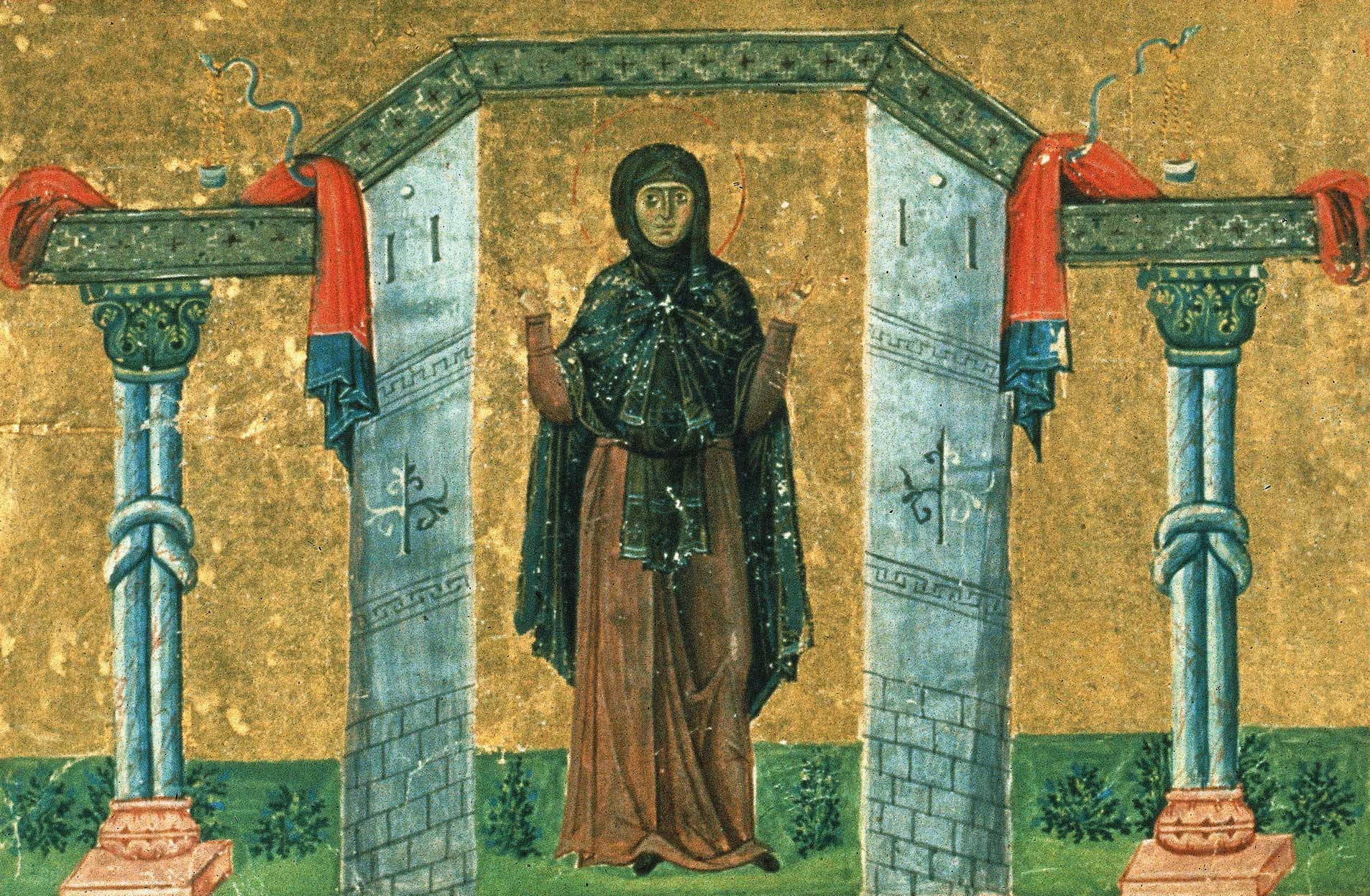
Saint Melania the Younger, niniature from the Menologion of Basil II, c. 985. Vatican Library, Rome.
• A complete history of African American bartenders in the late nineteenth century: “Dabney, then 73 years old, was born a slave in 1824. He would mix juleps and, eventually, cater excellent suppers for wealthy white Richmonders from before the Civil War until his death in 1900. And if he was treated with queasy-making condescension in the process—the Kentucky journalist dubbed him an ‘old uncle’ who is ‘a picturesque figure of the past’ and added that ‘his skin is dark, but there beats in his bosom a whiter heart than is sometimes found in persons whose skin is of a lighter hue’—he was at least able to work, and work profitably, at his trade.” (The Bitter Southerner)
• “He was so weak now, like a shrunk cedar white with the hoar-frost,” “Incredible little white teeth, like snow shut in a rose,” “You are as gloomy tonight as an undertaker out of employment,” and other truly awful similes from 1917. (Paris Review Daily)
• New archaeological evidence suggests a massacre among prehistoric foragers: “Violence has always been part of human behavior, but the origins of war are hotly debated. Some experts see it as deeply rooted in evolution, pointing to violent confrontations among groups of chimpanzees as clues to an ancestral predilection. Others emphasize the influence of complex and hierarchical human societies, and agricultural surpluses to be raided.” (New York Times)
• Do fairy tales predate even classical mythology? (The Guardian)
• The women excluded from the early history of Christianity: “Many of the female leaders of Christianity—in the Catholic Church in particular, with its 1.25 billion followers around the world—are barred from being fully ordained and are closely overseen by men. But this was not always the case. Scores of early Christian women—like Marcella, the desert-dwelling Susan, or the scholars Melania and Paula—embraced radical lives, helping the young religion fan out across the Roman Empire and beyond.” (Atlas Obscura)
• Janet Malcolm on the problems posed by a new biography of poet Ted Hughes: “The standing that the blabbings of contemporaries have in biographical narratives is surely one of the genre’s most problematic conventions. People can say anything they want about a dead person. The dead cannot sue. This may be the least of their troubles, but it can be excruciating for spouses and offspring to read what they know to be untrue and not be able to do anything about it except issue complaints that fall upon uninterested ears.” (New York Review of Books)